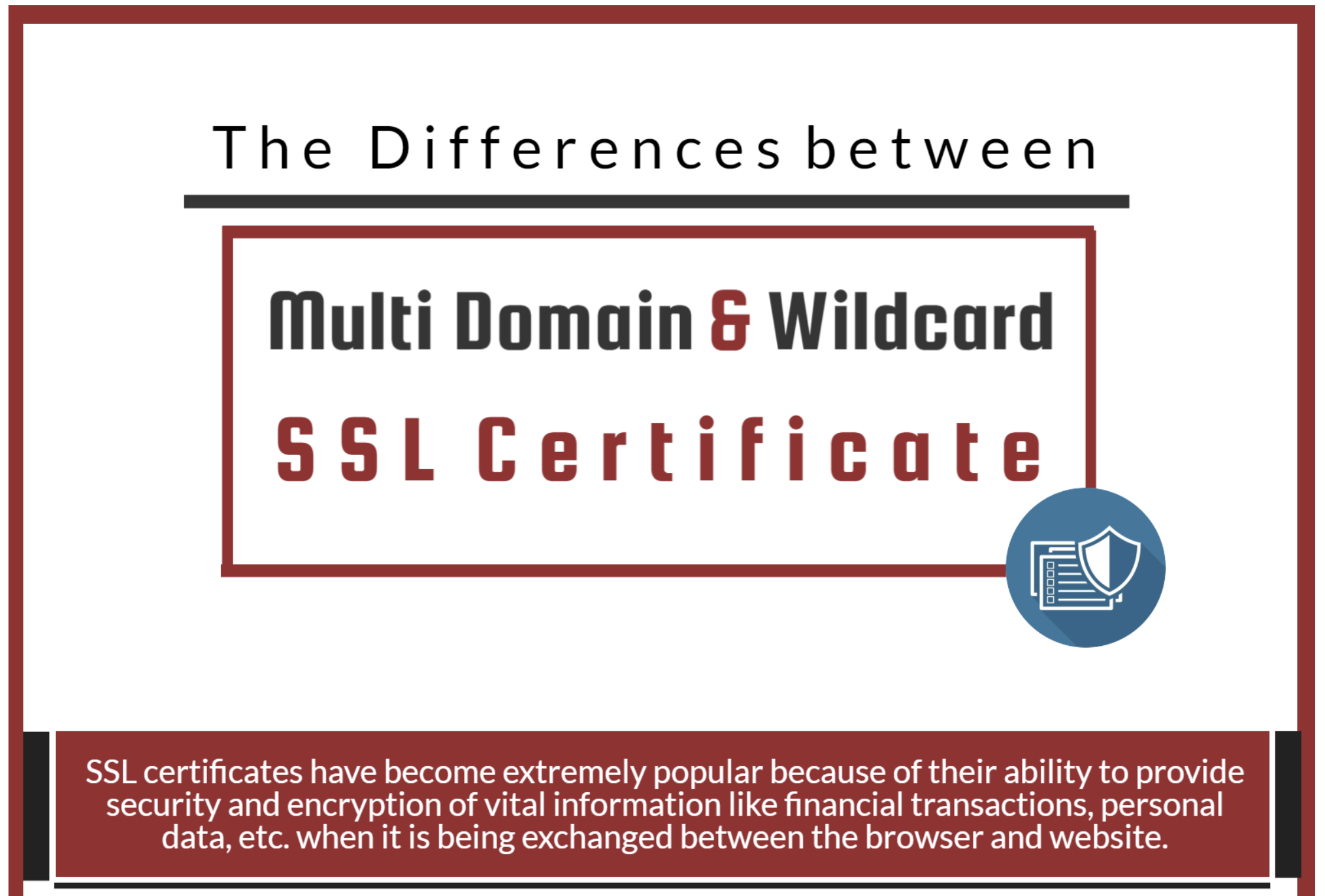SSL certificates have become extremely popular because of their ability to provide security and encryption of vital information like financial transactions, personal data, etc. when it is being exchanged between the browser and website.
43% of Web Surfers Abandon a Website when it Displays a Security Pop-up Alert
SSL certificates protect your sensitive data and information from being hacked and used in the wrong way, they allow you to shop online in a safe manner, and they also increase customer trust and loyalty. Certificate authorities also offer extra features in SSL certificates such as multi domain and wildcard.
Did You Know that around 86% of Websites had at least One Security Vulnerability?
A wildcard SSL certificate permits you to embed individual certificates on an unlimited number of sub-domains, but only at a particular level. For example, an SSL certificate is installed on the base website ‘www.abcd.com’; similarly, each wildcard certificate will also be installed on its sub-domains such as ‘www.blog.abcd.com’ and ‘www.news.abcd.com’.
Only 1.9% out of 1 Million Websites Use HTTPS
A multi domain SSL certificate enables users to secure multiple websites on a single certificate; in other words, you can have numerous domains encrypted by using a single certificate. The amount of domains allowed depend upon the Certificate Authority (CA). The major differences between both certificates are:
- The presence of a SAN or subject alternative name field. Well, both certificates contain the SAN field; the only difference is in the number of the fields. A wildcard SSL certificate contains a single SAN field with an asterik, which shows that multiple sub-domains have been secured.
On the other hand, a multi domain SSL certificate has more than one SAN field. There might be up to 100 SAN fields in a multi domain certificate depending upon the Certificate Authority.
- A wildcard certificate can only be chosen with an organization validation and domain validation, whereas a multi domain certificate works with all the three types of SSL certificates.
About 40% of Web Users Think that they are Being Compromised When Something Goes Wrong
- Wildcard certificates pose a security risk as well because anyone can access an SSL certificate’s key and establish a fake, malicious website, while there’s no such security concern in a multi domain certificate.
- Multi domain certificates add size to your website which can affect the site’s performance due to the number of SAN fields. On the flipside, there’s no effect on the website performance with a wildcard certificate.
Over 65% of SSL Encryptions don’t Work Properly on 10,000 Top Websites
Regardless of whether you choose a wildcard certificate or a multi domain certificate, SSL certificates need to be installed properly so that they can provide you and your clients the utmost security and protection.



